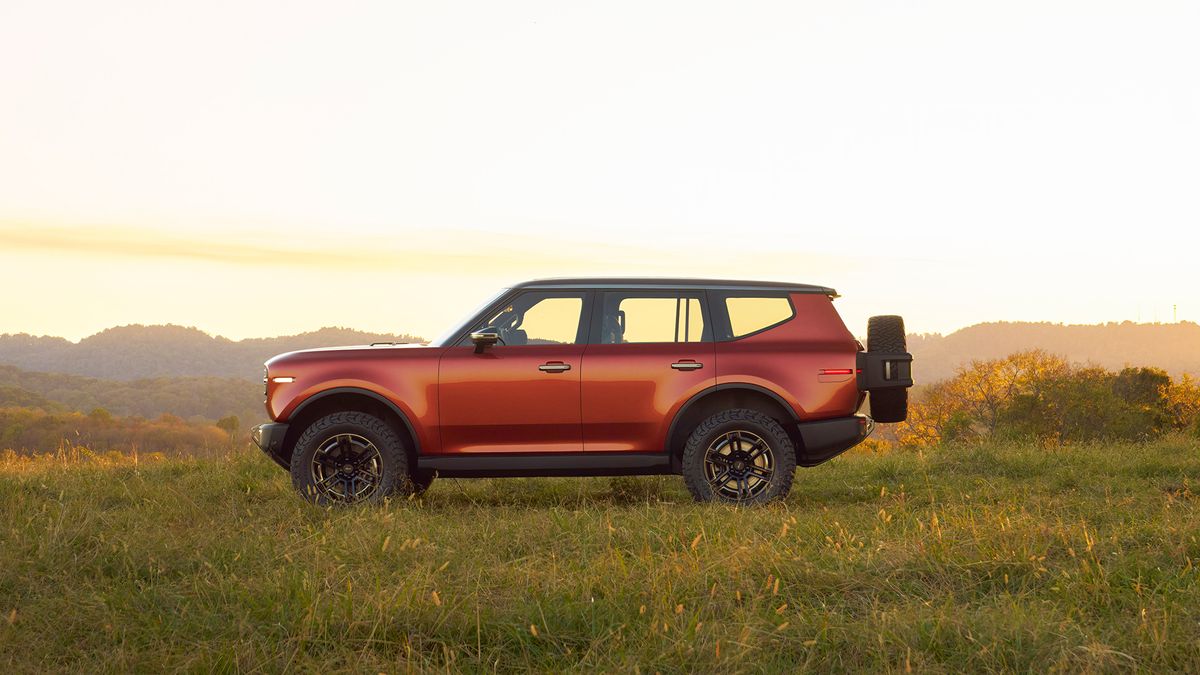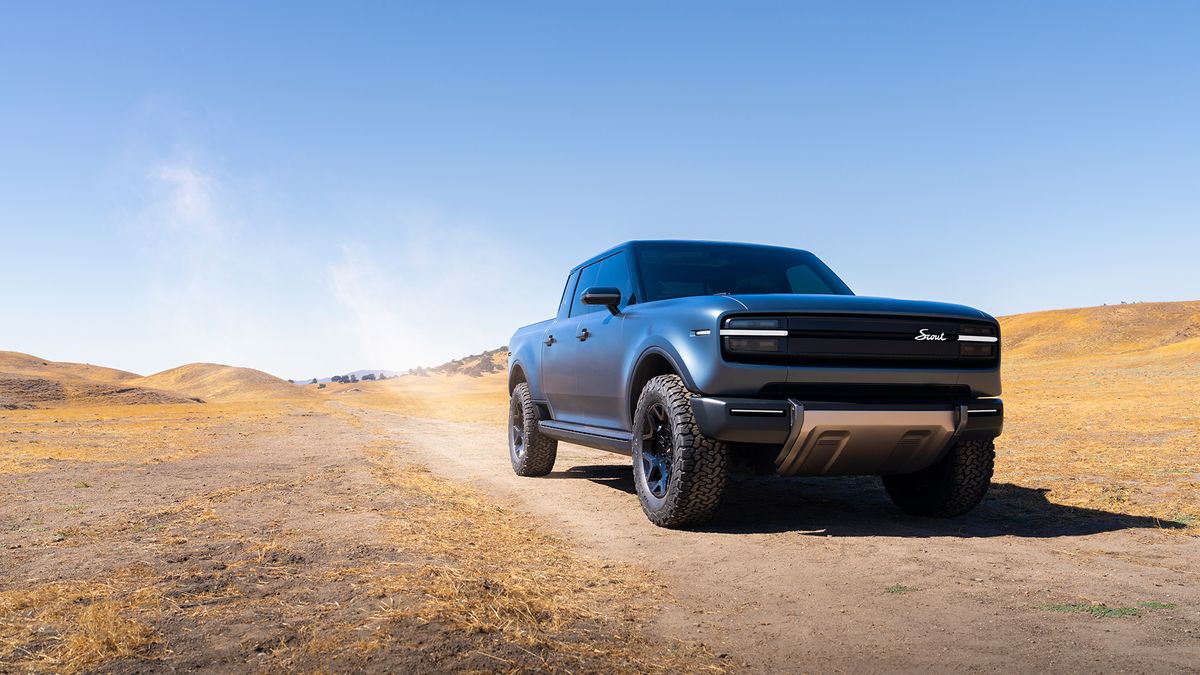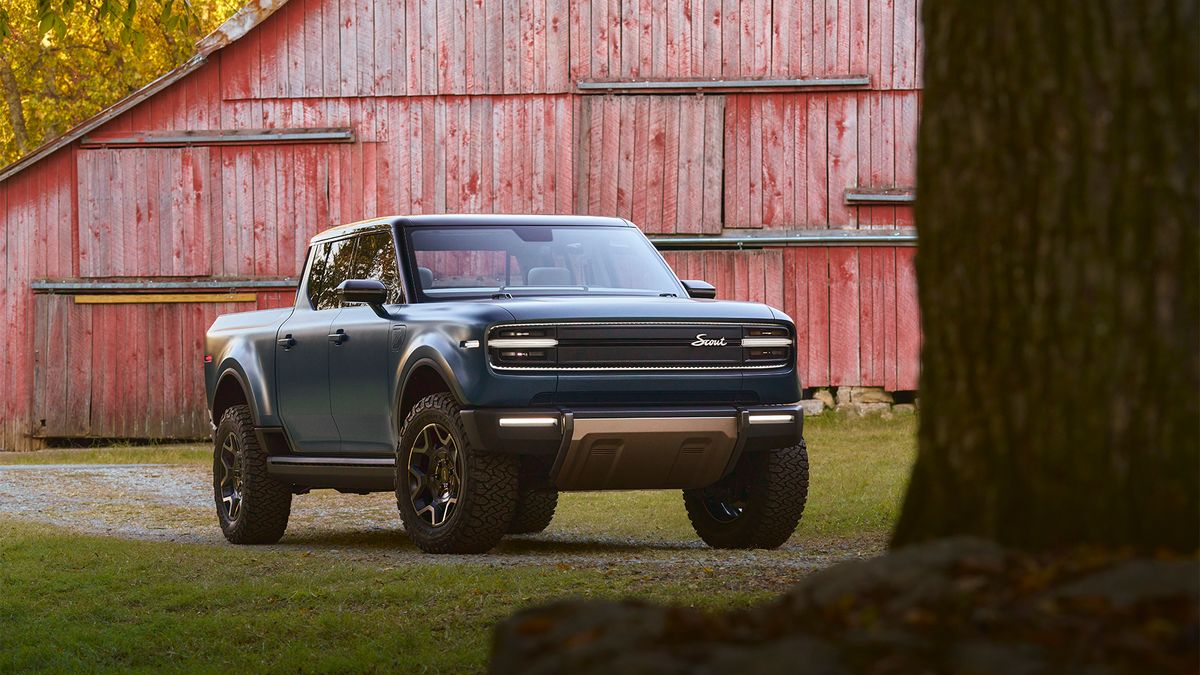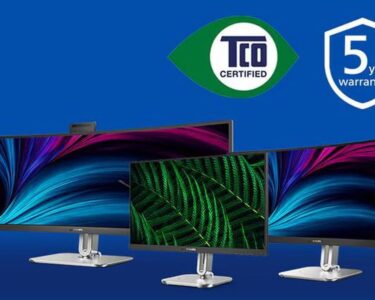- The Scout Terra electric pick-up brings back the bench seat
- Hybrid range-extender version can cover up to 500 miles
- Terra and Traveler won’t hit roads until 2027
Former American off-road brand Scout, which was recently purchased and revived by the Volkswagen Group, has returned to inject some throwback chic into the pick-up and SUV segment, as well as give the likes of Rivian a run for its money.
Although both the recently unveiled Terra Truck and Traveler SUV still fall under the banner of “production-intent concepts”, they give us our best look yet at what Volkswagen is trying to achieve by reviving the brand.
And that clearly means retro looks, nostalgic nods to the past and modern technology that features tactile buttons and mechanical switches where possible.
As someone with a mild obsession for old Chevrolet pick-ups from the 1960s and 70s, I think it’s wonderful – all of the best bits of classic American trucks, without the worry about things falling off or rusting away in the rain.
Despite previously suggesting that Scout was going to be a pure battery EV manufacturer, it has decided to also offer a range-extending hybrid into the mix, which the company states is good for around 500 miles of total range and should go some way to bash range anxiety over the head.
Pure electric versions of the Terra Truck will offer 350 miles, but there’s still no official word on the battery and motors used. However, all-wheel-drive comes as standard (obviously) and the most powerful versions of both Terra and Traveler should be able to hit 60mph from rest in around 3.5 seconds.
But it is inside Scout’s concepts where the nostalgia really kicks in, because the brand is arguably among the first to revive the front bench seat – a mainstay in the trucks and SUVs of America’s glorious yesteryear.
The company is is also a vocal advocate of real controls, dials and toggles to take care of key information, while the infotainment system appears to be on rails so the copilot can “take control of the screen while you focus on the road ahead”.
Analysis: Volkswagen needs a truck-shaped sales boost

Manufacturers clearly deem retro to be en vogue, as it is a mechanism that has recently been employed by French marque Renault, with the launch of its all-electric Renault 5 and upcoming Renault 4 models, while both Mini and Fiat are still playing on their heritage with great success.
Scout’s main rival, Rivian, is already notching up solid sales of its second-generation R1T and R1S models, as well as teasing the mid-sized R2 and R3, which are due sometime in 2026. All of these feature a hefty dose of nostalgia in their designs, too.
We won’t see either of Scout’s models hit the road until at least 2027, when the company predicts they will be on sale for $50,000 (around £38,000 / AU$75,600) to $60,000 (around £46,000 / AU$91,000) with incentives.
This is all subject to market conditions at the time of launch, of course, but pricing appears competitive, considering a Rivian R1T costs almost $10,000 more, while a base Cybertruck now hovers at $74,490.
Interestingly, Scout has also said it is going to eschew Volkswagen’s traditional dealer sales channels – much to the dismay of disgruntled dealers.

Instead, it will sell direct to consumer via its own unique spaces, as well as offer the ability to purchase online and through its app. It is a bid to modernize the buying experience and cut out the middleman.
It all feels very modern and appealing to the younger buyer, but will nostalgia and direct-to-consumer sales be enough to persuade them to make the switch?
Volkswagen could do with a truck-shapes sales boost in the US, as dwindling sales in China are currently stifling its progress in the EV market. The fact Scout will be made in the US will also get around the government’s recent tax hikes and proposed bans on vehicles imported from China.
Either way, Scout had me at bench seat.






